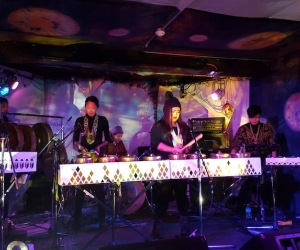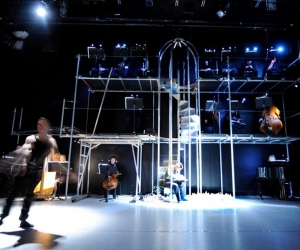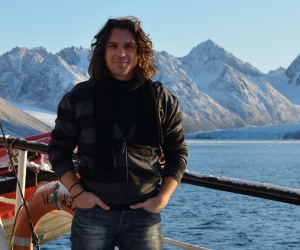
The exploratory, collectivist ethos of the U.K. live-coding scene laid the groundwork for Xylem Records, an experimental electronic music netlabel founded by composer and computer scientist Dr. Norah Lorway. Originally from Vancouver, B.C., Lorway moved to the U.K. in 2010 to pursue a Ph.D. at the University of Birmingham, where she researched electroacoustic composition and computer music. It was around this time that she fell in with a small community of like-minded researchers, developers, and musicians who would regularly gather to perform live, often improvised, electronic music by way of open-source programming software such as Tidal Cycles, Supercollider, and Sonic Pi.
“These events largely started as afterparties for computer music conferences and a lot of the performers were academics doing Ph.D.s,” Lorway explains via video call from her home in Cornwall, U.K. “It was just a fun thing to do.” Over the next two years, Lorway immersed herself in the live-coding scene, performing regularly at various underground venues in cities such as Birmingham, London, and Sheffield. She found the community to be supportive and open-minded, which was a breath of fresh air after encountering a degree of stuffiness in the world of electroacoustic music. Although the scene was very much a niche and academically oriented one in its infancy, the barrier to entry was quite low: beyond a laptop, the only other prerequisite was the ability to read and write code. “I’ve always found [live coding] very inclusive. When I started there were a lot of women, trans people, people of colour getting involved,” Lorway remarks.
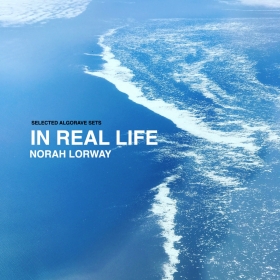

As the scene continued to grow, live-coding events began popping up all over the world. These events eventually became known as algoraves—a portmanteau of the words algorithm and rave—coined by live-coding pioneers Alex McLean and Nick Collins. There weren’t many labels releasing music created with code, however, so in 2013 Lorway took it upon herself to launch Xylem and establish a broader network of artists working in this domain. “I’m the kind of person who will just make something myself if it doesn’t already exist,” she says. This enterprising, DIY mindset, coupled with a desire to forget her classical piano background and start from scratch, formed the original impetus for Xylem.
Listening through the Xylem catalogue, I quickly noticed that there is no singular sound or genre that typifies the label. “A common misconception about algorave is that it is a genre, when really it’s just any music made with code,” Lorway explains. From the outset, she always wanted the label to be genreless, and although her initial focus was algorave and live coding, her scope expanded to include anything that fell under the loose category of computer music.
Xylem has an impressive catalogue of seventy-four albums, all released digitally, save two limited-edition CDs from U.K.-based acousmatic sound artist Louise Rossiter. With such a vast and diverse discography, it’s difficult to encapsulate Xylem’s aesthetic in stylistic terms. It is perhaps better to think of each release as a point situated on a spectrum between consonance and dissonance, between form and formlessness.
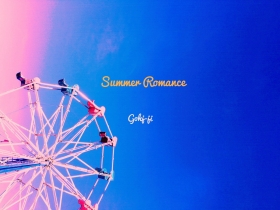
On the more abstract end lie the hodge-podge avant-garde of Kirill Platonkin’s Acoustic Borsch, the bone-chilling minimal drone of D.N.P.’s Midnight Catacombs, and the atonal atmospherics of Ross Birdwise’s Thresholds, to name a few. On the opposite end there are more accessible works like Gohj-ji’s shimmery, dream-pop EP Summer Romance, KOR_dATA’s electro-dance debut Numbers, and Lu_shush’s nostalgia-drenched folktronica releases Something Shared and In Person. Somewhere just off-centre reside I Am a Computer and Abstraction, the IDM and techno-adjacent works of live coders Kindohm and Nicholas Starke respectively.
Of course, these albums are only the tip of the iceberg—I could spend entire days sifting through the gold mine that is the Xylem Records catalogue. I’ve yet to even mention Lorway’s personal work, which she began releasing on the label regularly in 2017. Her material is part of its own soundworld altogether: there’s the entrancing beauty of her live-coded ambient series Drone Bølge, the intimate lockdown sound diary Illusion, or the dynamic techno of the algorave set archive In Real Life.
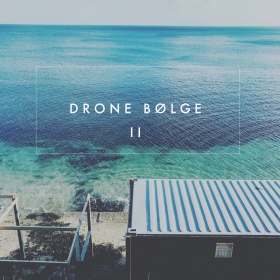
Between Xylem, her personal music, and her research projects, Lorway has maintained a prolific pace of output over the years without ever faltering in her commitment to community-building and musical experimentation. Her approach to running the label remains decidedly unpretentious and straightforward, letting the music speak for itself. “I never wanted to put pressure on anyone to sign a contract or market their work a certain way,” she says.
Lorway is also a strong supporter of fair compensation for artists; she deliberately does not distribute Xylem releases on streaming services, much preferring Bandcamp’s more equitable business model. Over the course of the pandemic, Lorway has been heartened by the resurgence of interest in independent labels spurred on by Bandcamp Friday—a campaign in which the company supports artists and labels affected by the pandemic by waiving their revenue shares for one day each month. With more people purchasing music and taking collective action in support of artists, Xylem has benefitted from an upswing in engagement. “It has really felt like a new beginning for the label,” says Lorway.
She hopes to build on this momentum through the rest of 2021. There’s plenty of material in the Xylem vault: archival releases, ambient projects, compilations, and even the debut release of j4net, Lorway’s harsh-noise pseudonym, are slated for future release. Lorway has a history of community involvement and wants to continue to make charitable initiatives a priority in future. “I’d like to give some extra meaning to the music,” she says. While live coding and algoraves are rooted in a highly technical process, Norah Lorway and Xylem Records operate on creativity, inclusivity, and pure passion.
